13 Hannah Gadsby 'Nanette' Quotes You Won't Be Able to Stop Thinking About
"I don't hate men, but I wonder how a man would feel if they would have lived my life."
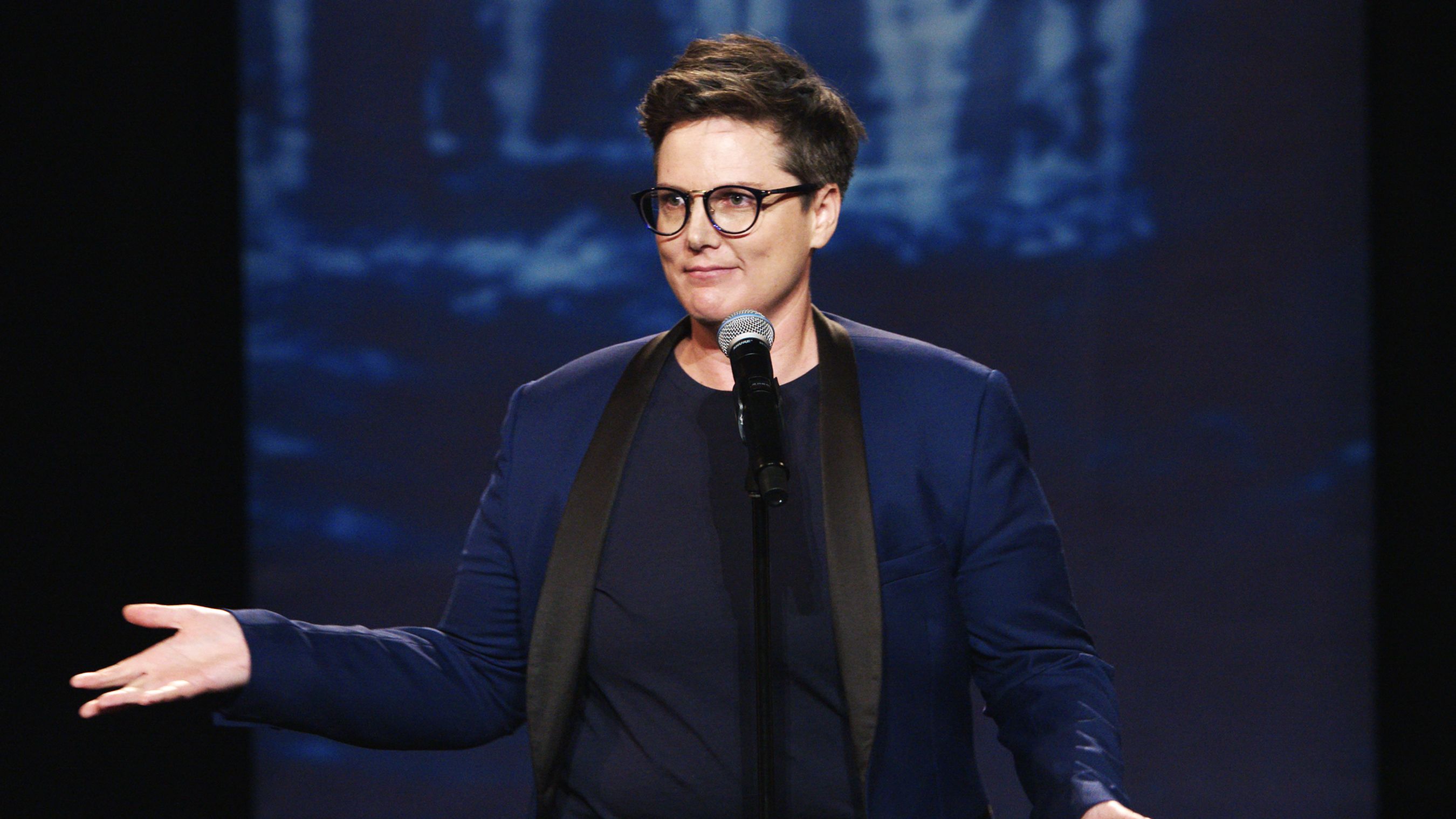
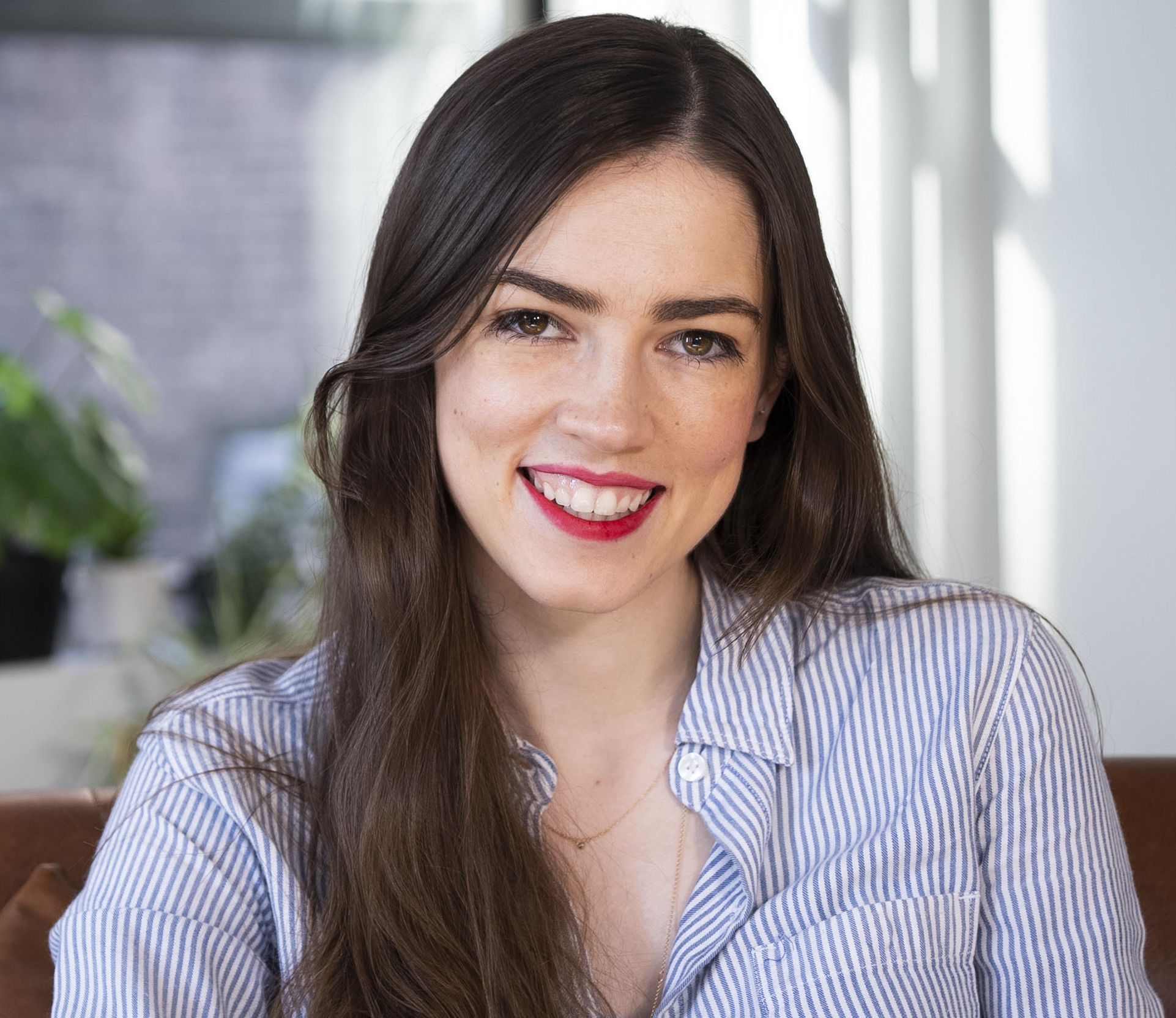
The one-hour Netflix special that is Hannah Gadsby's Nanette is breathtaking. A study in female anger, an inversion of comedy tropes, a wake-up call for toxic masculinity—and, beyond all, very, very funny. Gadsby, a 40-year-old comedian once described as a "tea-sipping Australian lesbian," has rocketed to international fame in the four weeks since Netflix released her stand-up special. I keep texting my friends: "Have you seen it yet?"
It's tempting to consider Nanette in the same breath as #MeToo, the Trump administration, and what feels like the slow collapse of world order through the ineptitude of prominent men. Yet I would argue that Nanette, while very much of its time, can be considered on its own. Its themes—discrimination; misogyny; internationalized shame—arguably reached an apex in 2018, but existed long, long before it.
"I don't hate men," Gatsby says, over and over again, as if daring us to consider why the world would assume it. All her life, she explains, she's been labeled a "man-hater." Gatsby's very existence poses a challenge to the monopoly that men, particularly cis white men, have—and she forces the audience to consider why that, and that alone, has endangered her. "Power belongs to you," she tells the men in her audience.
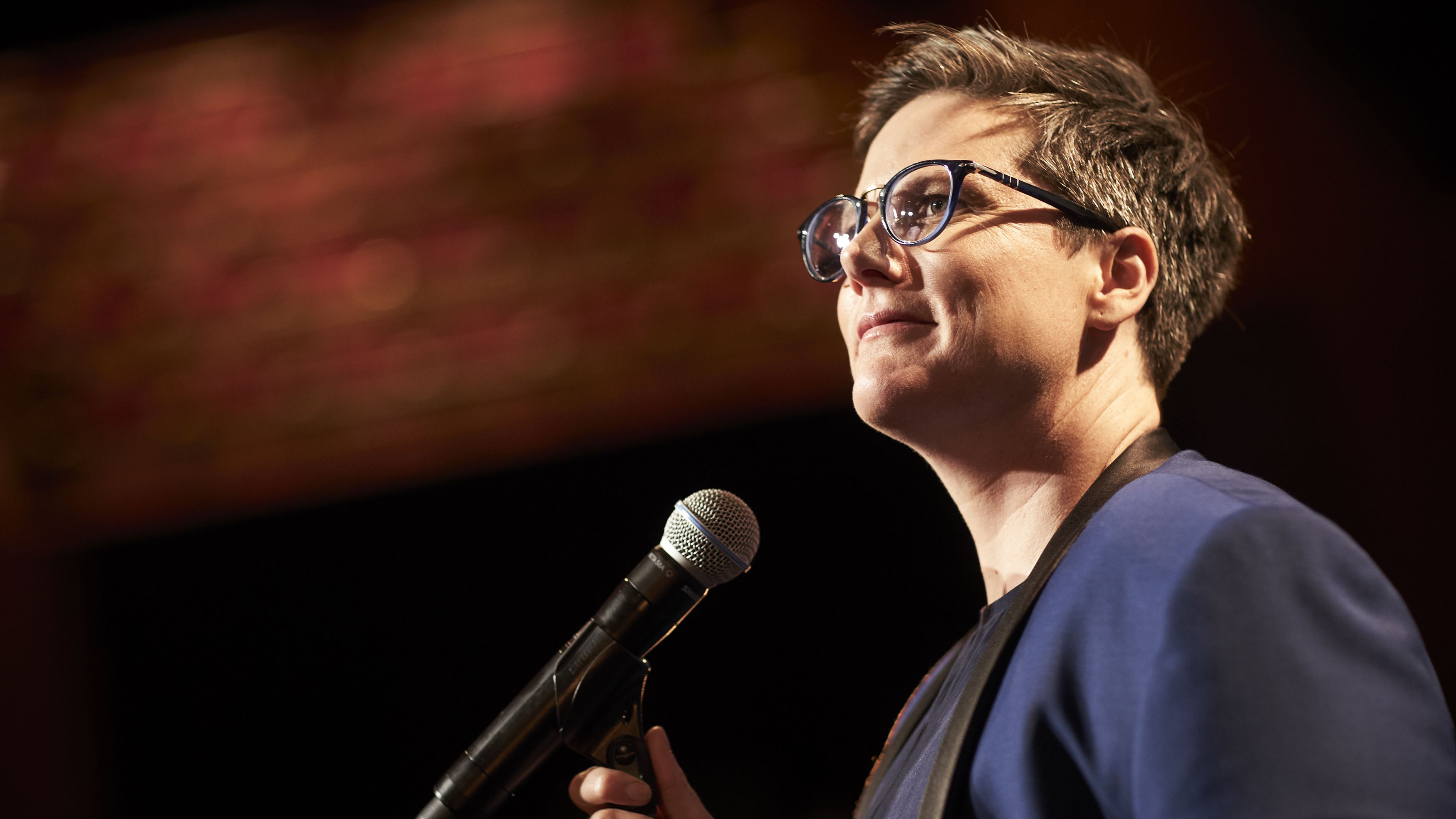
"I am not a man hater," she concludes. "But I am afraid of men."
To distill Gadsby's insights into a summary of her points would be an injustice. So, instead, here are some of the most startling and penetrating quotes from Nanette.
On Men
"I don't hate men, but I wonder how a man would feel if they would have lived my life."
Stay In The Know
Get exclusive access to fashion and beauty trends, hot-off-the-press celebrity news, and more.
On Self-Deprecating Humor
"I have built a career out of self-deprecating humor and I don’t want to do that anymore. Do you understand what self-deprecation means when it come from somebody who already exists in the margins? It’s not humility, it's humiliation. I put myself down in order to speak, in order to seek permission to speak, and I simply will not do that anymore, not to myself or anybody who identifies with me. If that means that my comedy career is over, then, so be it."
On Her Identity
"I don’t identify as transgender. But I’m clearly gender not-normal. I don’t think even lesbian is the right identity for me. I really don’t. I might as well come out now. I identify as tired. I’m just tired."
On Tension
"I’ve been mastering the art of tension since childhood. I didn’t have to invent the tension. I was the tension. I’m tired of tension. Tension is making me sick."
On Shame
"Punchlines need trauma, because punchlines need tension and tension feeds trauma. I didn’t come out to my grandmother last year because I’m still ashamed of who I am. Not intellectually, but right here [points to heart], I still have shame. You learn from the part of the story you focus on. I need to tell my story properly. "
On Anger
"I have a right to be angry, but not to spread it."
On Strength
"There is nothing stronger than a broken woman who has rebuilt herself.”
On Giving Up Comedy
"What my mom eventually said to me was pretty much at the core of why I’m questioning comedy. She said to me, ‘The thing I regret is that I raised you as if you were straight. I didn’t know any different. I’m so sorry. I knew well before you did, that your life was going to be so hard. I knew that, and I wanted, more than anything in the world, for that not to be the case. And now I know that I made it worse. I made it worse because I wanted you to change, because I knew that the world wouldn’t.’
"I looked at my mom in that moment and thought, how did that happen? How did my mom get to be the hero of my story? She evolved. I didn’t. I think part of my problem is that comedy has suspended me in a perpetual state of adolescence."
On Her Own Story
"I don’t want to unite you with laughter or anger. I just need my story heard.”
On Her Childhood In Tasmania
"Seventy percent of the people who raised me, who loved me, who I trusted, believed that homosexuality was a sin, that homosexuals were heinous, subhuman, pedophiles. 70 percent! And by the time I identified as being gay, it was too late, I was already homophobic. And you do not get to just flip a switch on that."
On Humanity
"To be rendered powerless does not destroy your humanity. Your resilience is your humanity. The only people who lose their humanity are those who believe they have the right to render another human being powerless. They are the weak. To yield and not break, that is incredible strength."
On Public Discourse
"This is bigger than homosexuality. This is about how we conduct debate in public about sensitive things. It’s toxic. It’s juvenile. It’s destructive. We think it's more important to be right than it is to appeal to the humanity of people we disagree with. "
On Being Beaten
"He beat the shit out of me and nobody stopped him. I didn't report him to the police. And I didn't take myself to hospital. And I should have. But I didn't, because that's all I thought I was worth. That's what happens when you soak one child in shame and give permission to another to hate."
On Being Different
"This tension is yours. I am not helping you anymore. You need to learn what this feels like, because this tension is what not-normals carry inside of them all of the time. It is dangerous to be different."
You can stream Nanette on Netflix now.

Jenny is the Digital Director at Marie Claire. A graduate of Leeds University, and a native of London, she moved to New York in 2012 to attend the Columbia University Graduate School of Journalism. She was the first intern at Bustle when it launched in 2013 and spent five years building out its news and politics department. In 2018 she joined Marie Claire, where she held the roles of Deputy Digital Editor and Director of Content Strategy before becoming Digital Director. Working closely with Marie Claire's exceptional editorial, audience, commercial, and e-commerce teams, Jenny oversees the brand's digital arm, with an emphasis on driving readership. When she isn't editing or knee-deep in Google Analytics, you can find Jenny writing about television, celebrities, her lifelong hate of umbrellas, or (most likely) her dog, Captain. In her spare time, she writes fiction: her first novel, the thriller EVERYONE WHO CAN FORGIVE ME IS DEAD, was published with Minotaur Books (UK) and Little, Brown (US) in February 2024 and became a USA Today bestseller. She has also written extensively about developmental coordination disorder, or dyspraxia, which she was diagnosed with when she was nine.
-
 Tyla's Coachella Outfit Pairs Dolce & Gabbana With Pandora
Tyla's Coachella Outfit Pairs Dolce & Gabbana With PandoraThe singer wore a gold version of the crystal bra made famous by Aaliyah.
By Amy Mackelden Published
-
 How Kate Middleton Is Influencing George's Fashion Choices
How Kate Middleton Is Influencing George's Fashion ChoicesThe future king's smart blazer is straight out of Princess Kate's style playbook.
By Amy Mackelden Published
-
 King Charles "Couldn't" Meet Prince Harry During U.K. Visit
King Charles "Couldn't" Meet Prince Harry During U.K. Visit"It could actually bring down a court case."
By Amy Mackelden Published
-
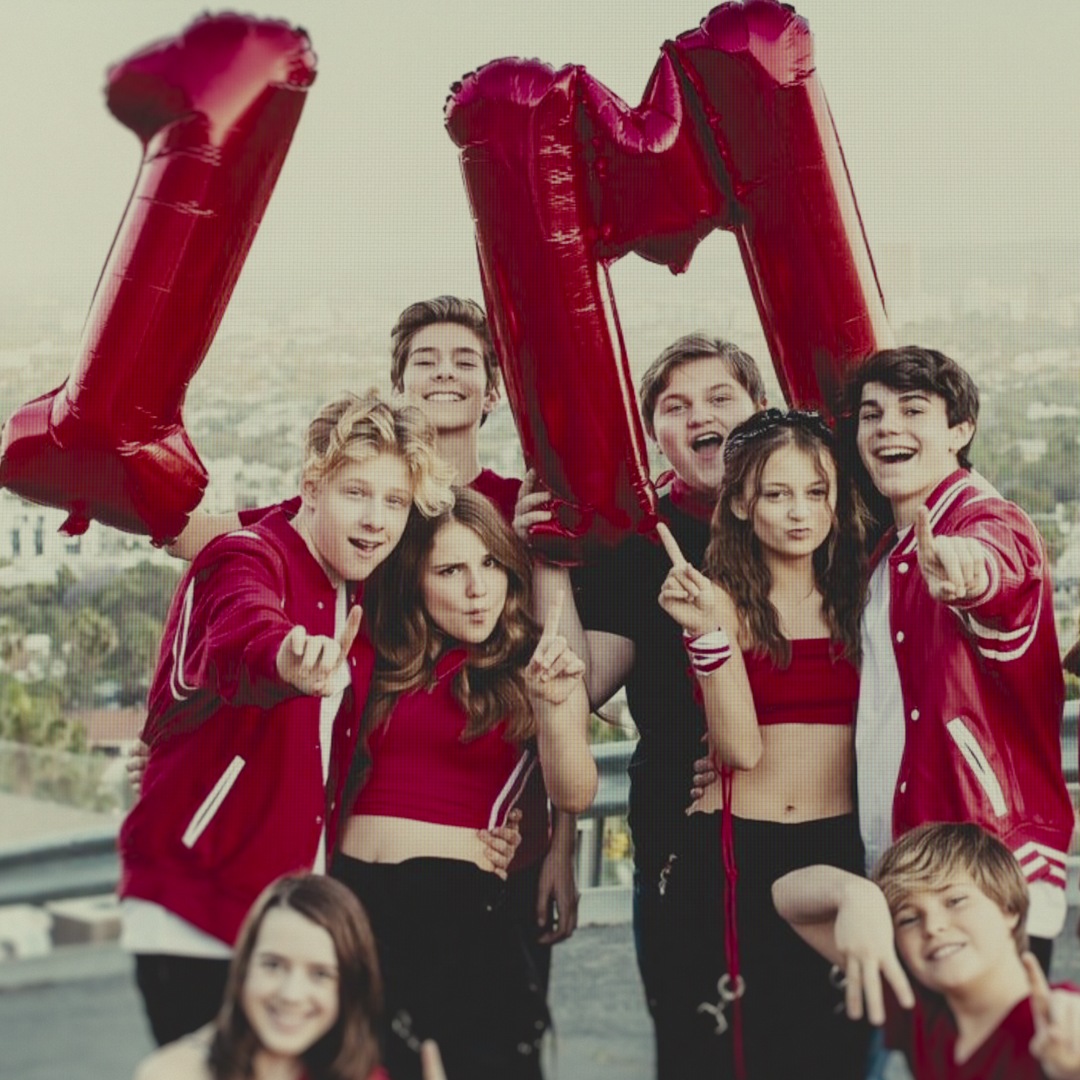 Where Are the Members of The Squad From 'Bad Influence: The Dark Side of Kidfluencing' Now?
Where Are the Members of The Squad From 'Bad Influence: The Dark Side of Kidfluencing' Now?The names in the Netflix docuseries have fallen out of touch with subject Piper Rockelle.
By Quinci LeGardye Published
-
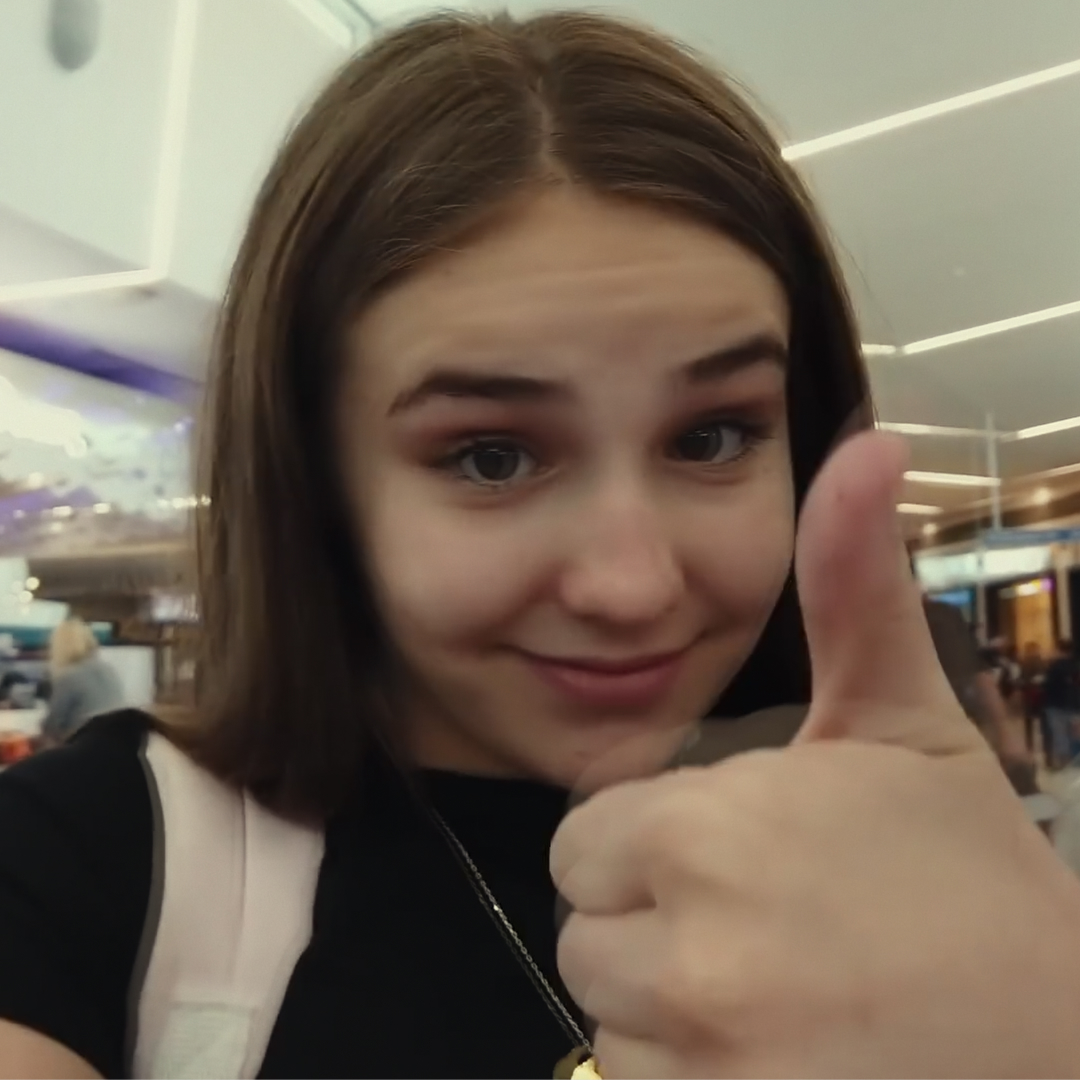 Where Is Piper Rockelle Now? What We Know About the Subject of 'Bad Influence: The Dark Side of Kidfluencing'
Where Is Piper Rockelle Now? What We Know About the Subject of 'Bad Influence: The Dark Side of Kidfluencing'The documentary examines a kidluencing empire and the lawsuit against it.
By Quinci LeGardye Published
-
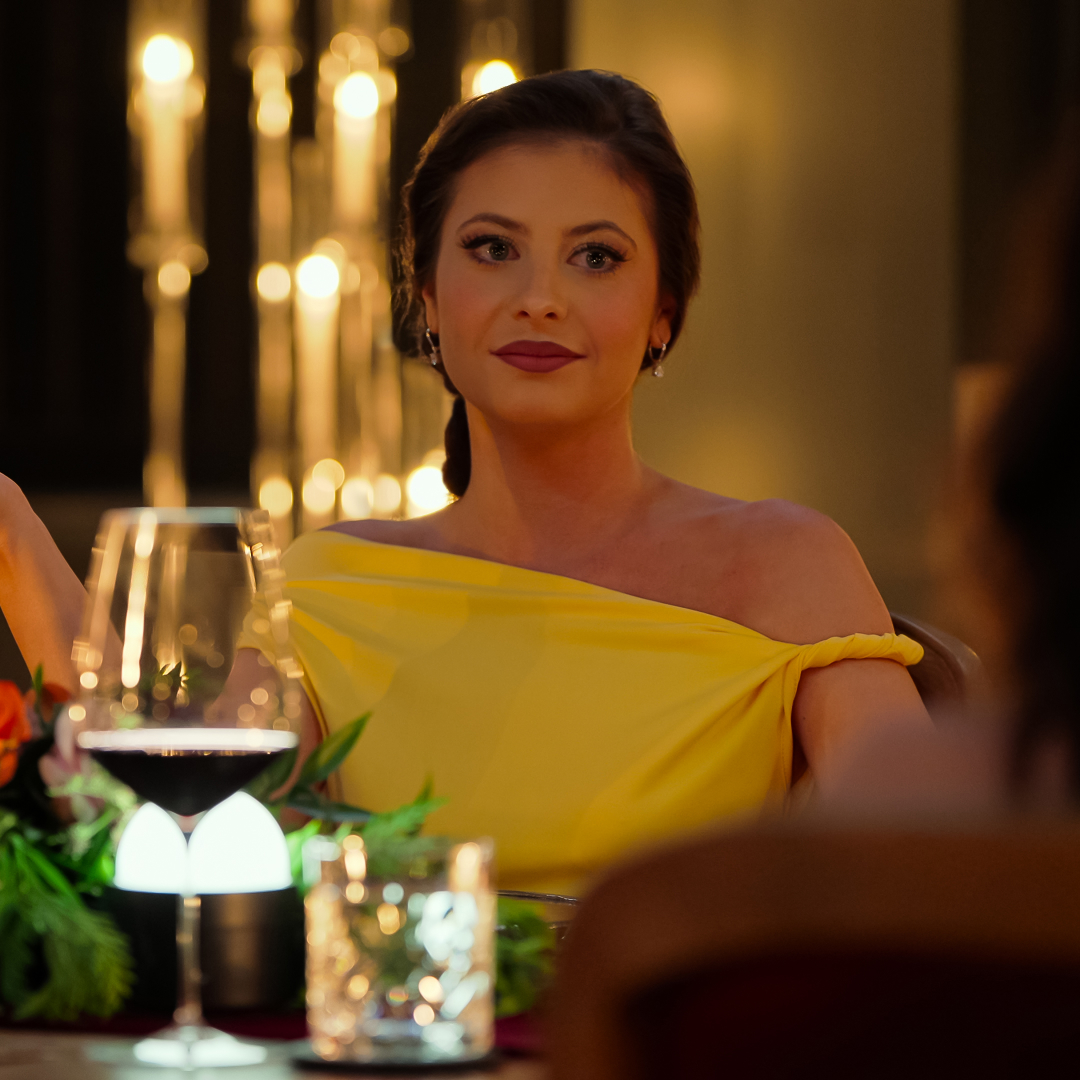 Who Won 'Million Dollar Secret?' All About Winner Cara Kies
Who Won 'Million Dollar Secret?' All About Winner Cara KiesHere's what to know about the In-N-Out line cook who took home the prize pot.
By Quinci LeGardye Published
-
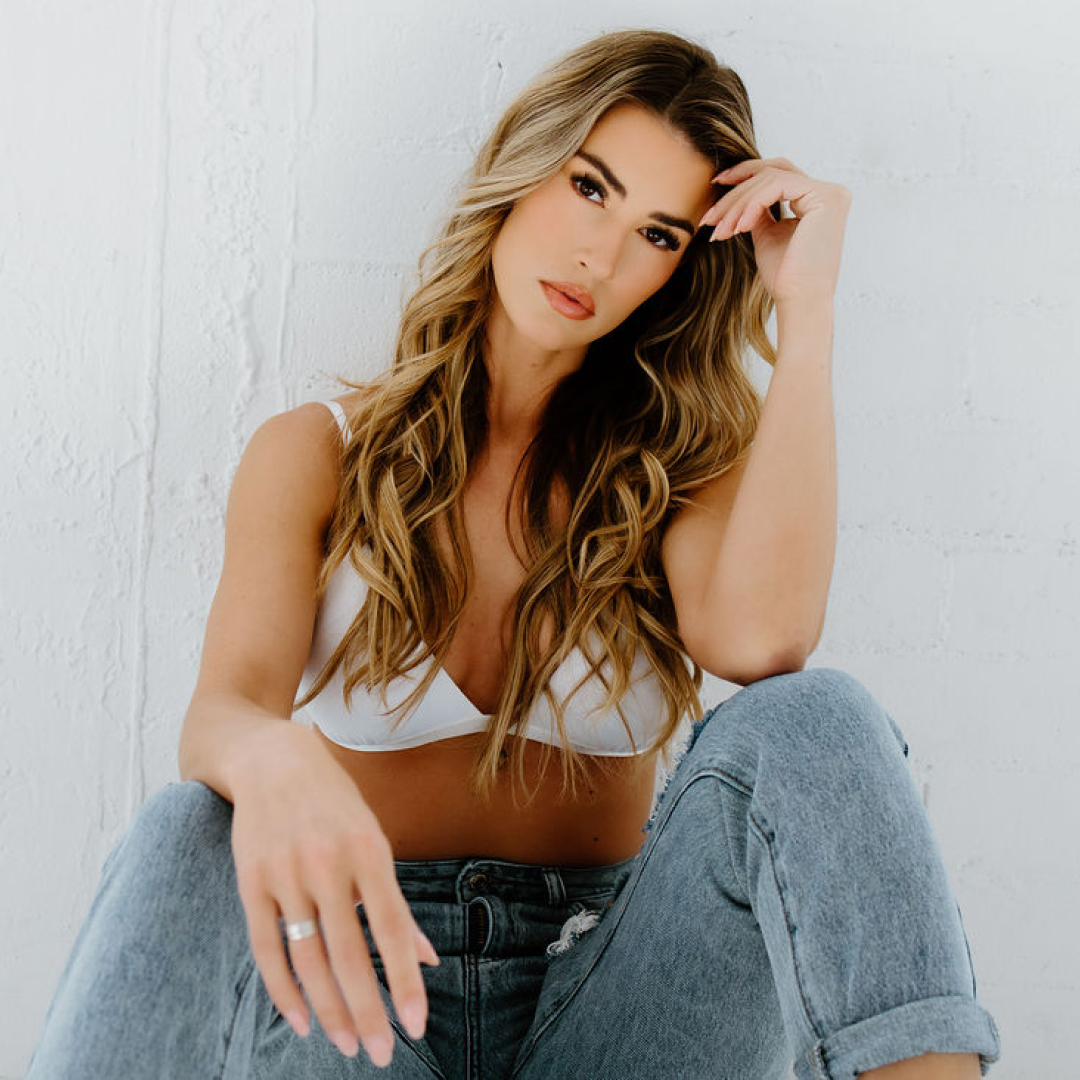 Sydnee Falkner Is More Than the 'Million Dollar Secret' Mean Girl
Sydnee Falkner Is More Than the 'Million Dollar Secret' Mean GirlThe reality star dishes on everything from her regrets and the finale to what you didn’t see on-screen in Netflix’s latest hit.
By Quinci LeGardye Published
-
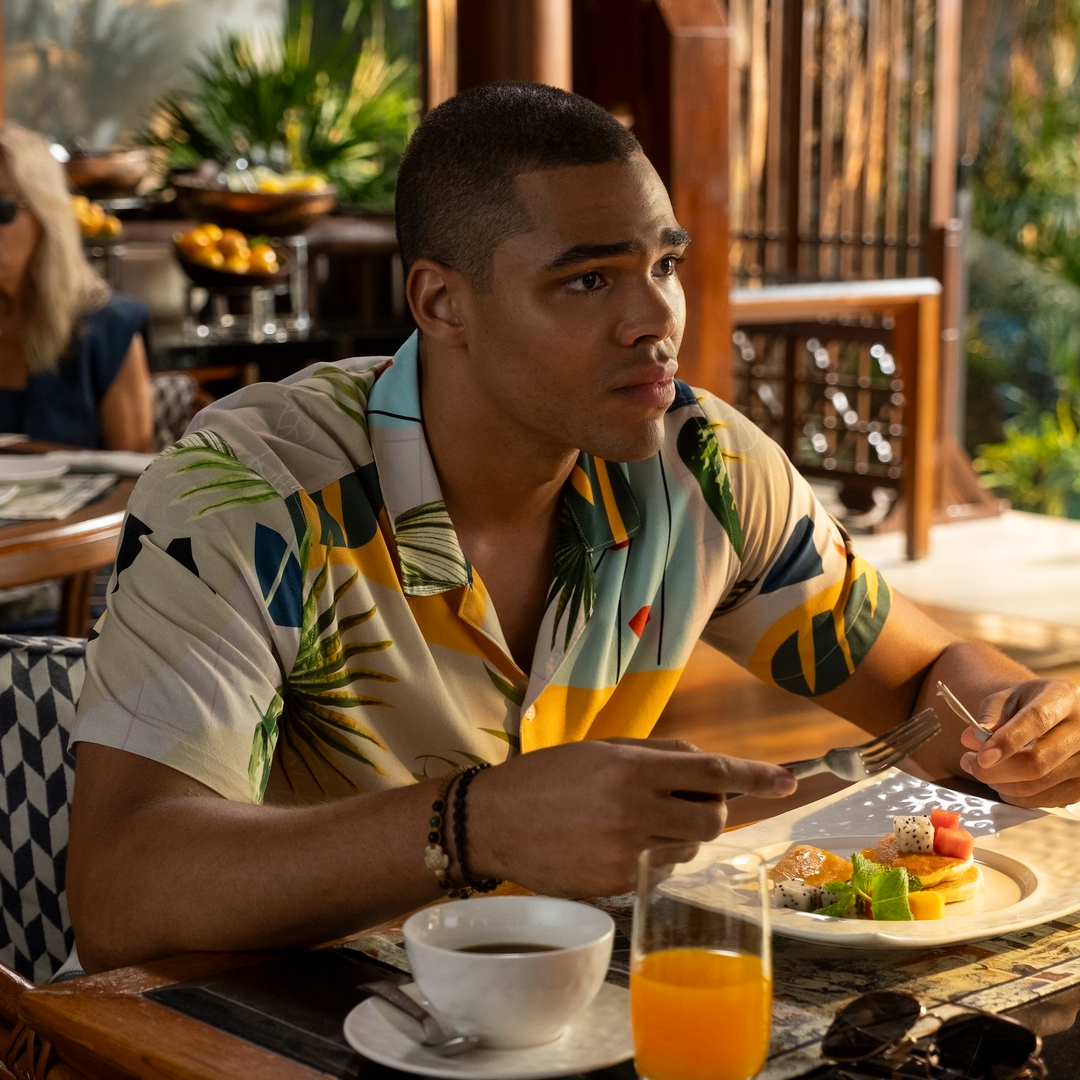 Meet Nicholas Duvernay, the Actor Who Plays Zion in 'The White Lotus' Season 3
Meet Nicholas Duvernay, the Actor Who Plays Zion in 'The White Lotus' Season 3We can't stop thinking about his scene-stealing performance in the finale.
By Quinci LeGardye Published
-
 'The White Lotus' Season 4: Everything We Know
'The White Lotus' Season 4: Everything We KnowCreator Mike White has already started teasing where the next installment will be set—and who might be back.
By Quinci LeGardye Published
-
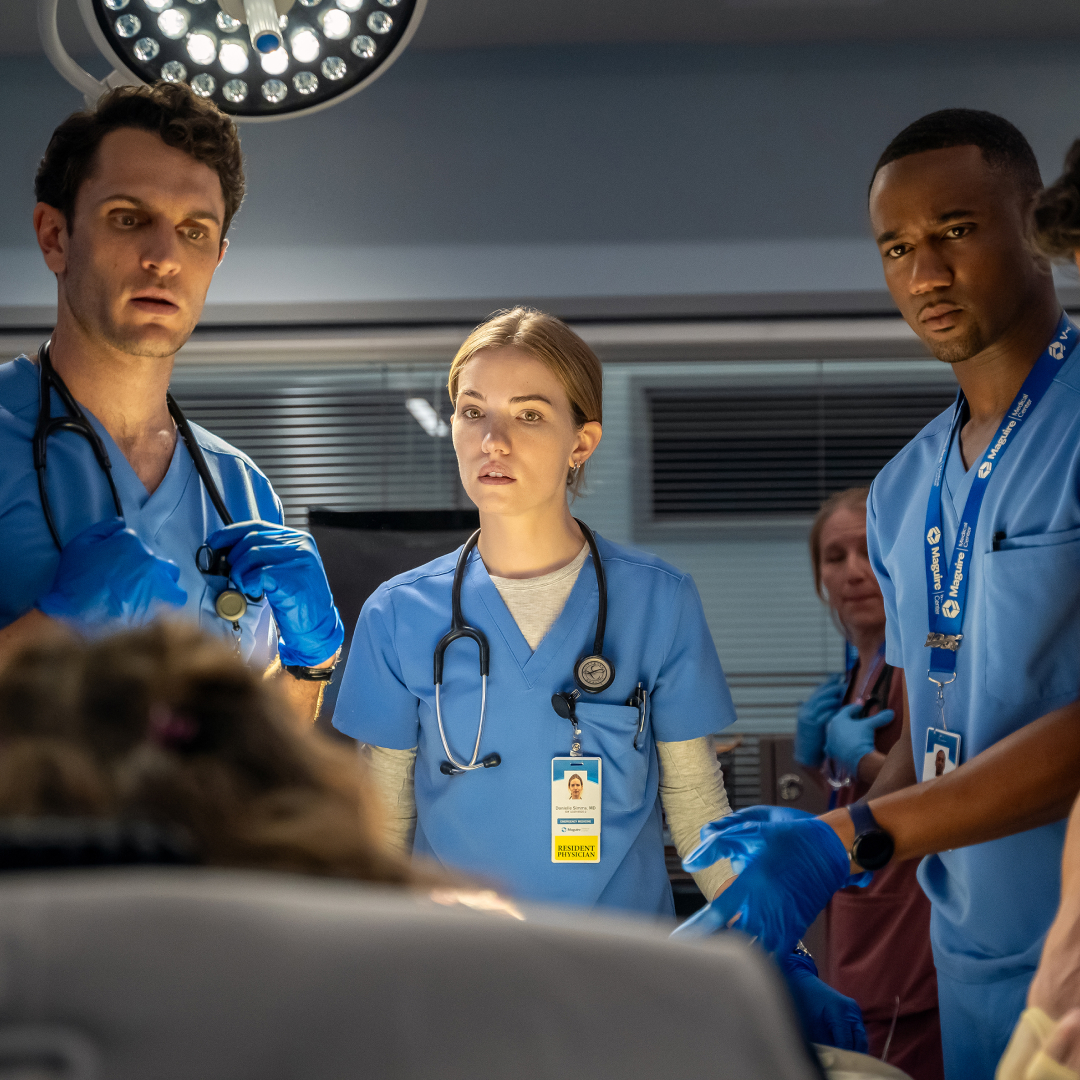 'Pulse' Season 2: Everything We Know
'Pulse' Season 2: Everything We KnowWe need to know about the future of the central will-they-won't-they STAT.
By Quinci LeGardye Published
-
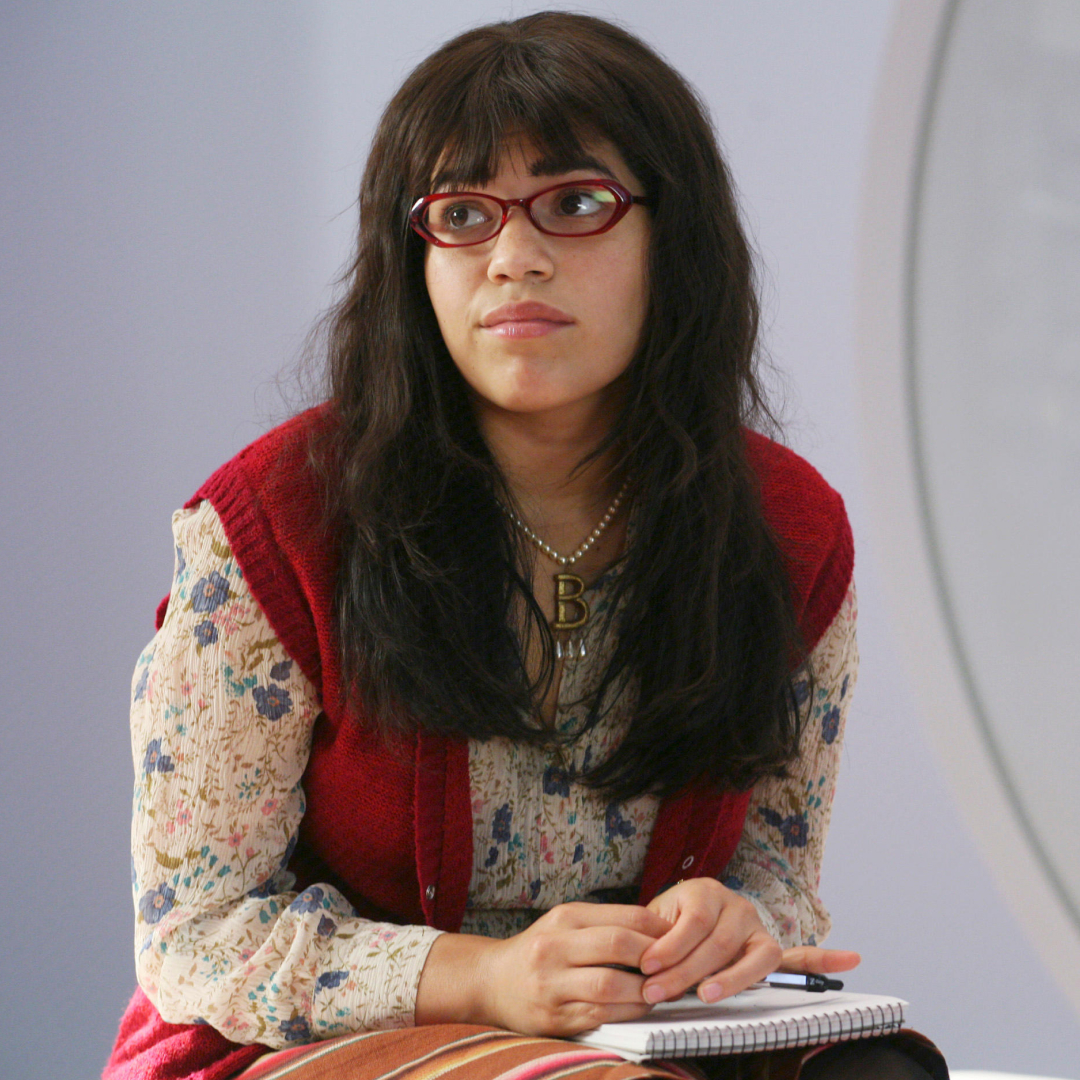 The Best Workplace TV Shows of All Time
The Best Workplace TV Shows of All TimeFrom iconic sitcoms to award-winning dramas.
By Iris Goldsztajn Published
